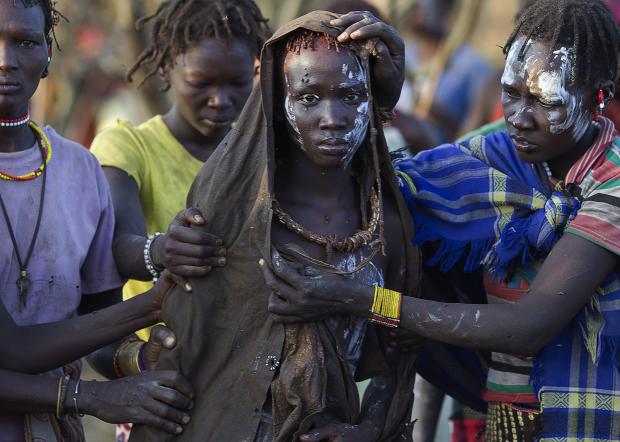Doctors in Kenya are performing female genital mutilation 'for the money' - priest

Female genital mutilation (FGM) is reportedly being performed in Kenyan hospitals, alarming international rights groups, activists, and churches.
Reverend Richard Nyangoto, a Roman Catholic priest in Kisii County, claims that FGM is widely practised by medical practitioners not for any health reasons but for cash.
"Like abortion, they are performing FGM for the money in hospitals and other places," said Nyangoto.
"Taking it to hospital does not make it right. It's evil," the cleric added.
According to the World Health Organisation, although FGM is usually carried out by traditional circumcisers, "more than 18% of all FGM is performed by health care providers."
Furthermore, the United Nations agency also reports that "the trend towards medicalisation is increasing" as more and more women seek to avoid infection, the risk of which is too high with traditional circumcisers who often use unsterilised tools.
The controversial procedure, recognised internationally as a violation of the human rights of girls and women, involves removing a part or the whole of a female's external genitalia.
Usually performed on babies and girls no older than 15, the practice has no medical benefits and can result in complications like severe bleeding, difficulty passing urine, cysts, infections, infertility, and even death.
According to the Catholic news website Crux, FGM killed at least three girls last year, two of whom bled to death.
Despite the risks, it seems difficult to put a stop to the practice in those areas where it is a social convention.
Judith Nyaata, FGM project coordinator at the Evangelical Lutheran Church in Kenya, explained that the cutting is treated by some communities as part of the marriage ritual. She also said that women who have been circumcised can negotiate for a higher bridal price.
FGM is outlawed by many governments, but though that is the case, millions are still at risk from the practice.
A UNICEF report in 2013 stated: "More than 125 million girls and women alive today have been subjected to [FGM] in the 29 countries in Africa and the Middle East in which it is concentrated, and 30 million girls are at risk of being cut within the next decade."
Looking at the staggering statistics, former UNICEF Deputy Executive Director Geeta Rao Gupta said that the practice may stop only if those against it find the courage to stand up to social pressure and voice their opposition.
"What is clear from this report is that legislation alone is not enough. The challenge now is to let girls and women, boys and men speak out loudly and clearly and announce they want this harmful practice abandoned," Gupta said.











